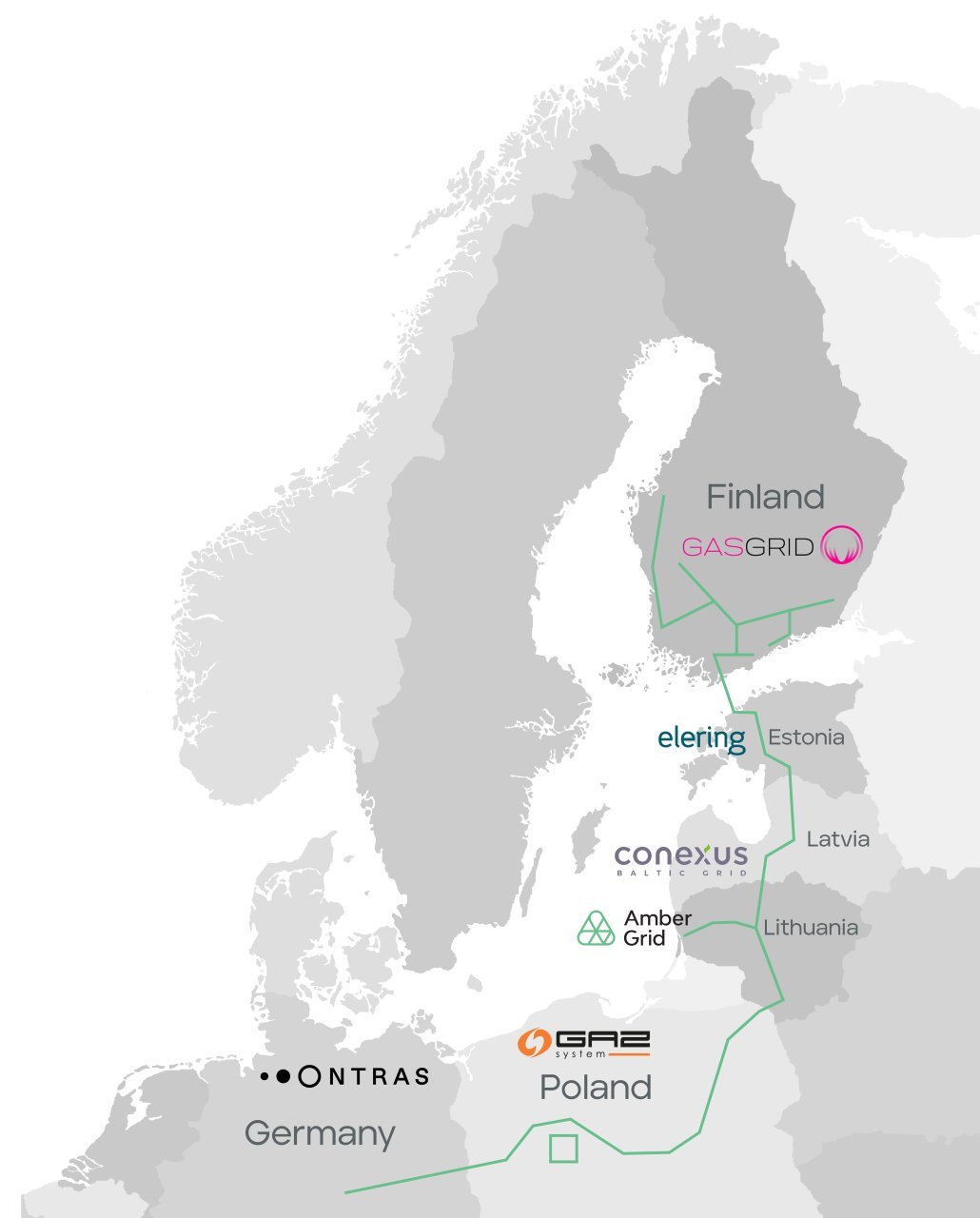Advancing the Nordic-Baltic Hydrogen Corridor: Pioneering a Green Energy Future
Key Ideas
- Six European gas transmission system operators are conducting feasibility studies for the Nordic-Baltic Hydrogen Corridor until mid-2026, focusing on various aspects including pipeline routing and economic analysis.
- The project aims to reduce carbon emissions by up to 37 million tons of CO2 equivalent per year by 2050, enhance energy security, supply diversity, and decarbonize hard-to-abate sectors in Europe.
- The Nordic-Baltic Hydrogen Corridor is linked to the EU's decarbonization targets, granted the status of a Project of Common Interest (PCI), and has applied for Connecting Europe Facility (CEF) funding.
- Through collaboration and meticulous planning, the corridor is expected to establish a safe, reliable, and cost-efficient transport route for renewable hydrogen, boosting the hydrogen economy in Europe.
Gas transmission system operators from Finland, Estonia, Latvia, Lithuania, Poland, and Germany are jointly undertaking feasibility studies for the Nordic-Baltic Hydrogen Corridor (NBHC). The studies, scheduled until mid-2026, will encompass a wide range of considerations including pipeline routing, compressor stations, financial analysis, and safety permitting. Concurrently, cross-border analyses will be conducted to strengthen the project planning on a broader scale. The TSOs are enthusiastic about the prospects of the NBHC, emphasizing its potential to significantly reduce carbon emissions, spur business growth, and support the development of a new hydrogen economy in Europe.
The NBHC project aligns with the EU's decarbonization goals and is deemed essential for integrating renewable hydrogen across the six involved member states. It is projected to make a substantial impact by cutting down carbon emissions and contributing to energy security and supply diversity. The corridor is envisioned as a pivotal element in connecting renewable hydrogen production centers to demand hubs, ultimately aiding in decarbonizing challenging sectors.
The European Commission has recognized the significance of the NBHC by granting it the status of a Project of Common Interest, underscoring its importance in the 'Baltic Energy Market Interconnection Plan for Hydrogen.' Additionally, the TSOs have sought funding support through the Connecting Europe Facility. By fostering collaboration and meticulous planning, the NBHC aims to establish a robust and efficient transport route for renewable hydrogen. The project envisions a future where hydrogen plays a vital role in shaping a sustainable energy landscape across Europe.
Topics
Europe
Infrastructure
Business Growth
Energy
Decarbonization
Renewable
Collaboration
EU Funding
European Union
Latest News
